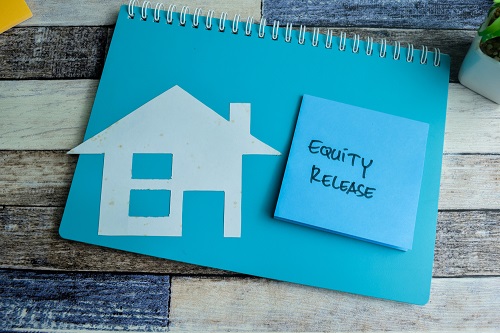
For retirees and homeowners in Columbia, SC looking to tap into the value of their home without selling it, several financial tools exist—including reverse mortgages and equity share agreements. While both allow access to home equity, they operate very differently and serve unique needs. As a trusted Reverse Mortgage Specialist, I want to help you understand how these options compare so you can make the right decision for your financial future.
What Is an Equity Share Agreement?
An equity share agreement, sometimes called a shared appreciation mortgage or shared equity arrangement, allows homeowners to receive a lump sum or periodic payment in exchange for giving up a share of their home’s future value. These agreements typically involve:
- No monthly payments or accruing interest
- An investor or company added to your home’s title as a part-owner
- Repayment—including a share of your home’s appreciation—when the home is sold or the agreement ends
While this may sound appealing, the reality is that you’re giving up partial ownership of your most valuable asset—and that can come with serious long-term consequences.
How Equity Share Agreements Work
Here’s how these arrangements typically play out:
1. Agreement Setup: You sign a contract with an investor outlining how much of your home’s future value they’ll own. They are added to your title—meaning you no longer have full ownership.
2. Cash Disbursement: You receive funds based on the agreed terms—either as a lump sum or installments.
3. Repayment: When the agreement matures or you sell your home, the investor receives their original investment plus their share of the appreciation.
What If the Value of Your Home Drops?
Depending on the agreement, you may still be on the hook:
- Some investors share the loss, while others limit their risk, leaving you with more exposure.
- Contract terms may protect the investor first, not you.
- If you violate the contract terms, you could face foreclosure or forced sale of your home.
This is why it’s crucial to read the fine print and consult legal and financial professionals before signing any equity share agreement.
Equity Share Agreements vs. Reverse Mortgages
Here’s how equity share agreements compare to reverse mortgages, which are often a better fit for retirees who want to retain control of their home:
| Feature | Equity Share Agreement | Reverse Mortgage |
|---|---|---|
| Homeownership | Shared with investor | You retain 100% ownership |
| Payments | No monthly payments, but large balloon payment at sale | No required payments; repayment deferred until you move, sell, or pass away |
| Equity | Investor receives part of your home’s appreciation | All remaining equity is yours (or your heirs’) |
| Flexibility | May be limited by agreement | Flexible disbursement: lump sum, monthly income, or line of credit |
| Risk | Investor may benefit more from your home’s growth | You benefit entirely from your home’s appreciation |
| Eligibility | Fewer requirements | Must be 62+ with sufficient equity and financial standing |
Which Option Is Right for You?
 Here are some important questions to ask yourself:
Here are some important questions to ask yourself:
- Do you want to keep full ownership of your home? If yes, a reverse mortgage is likely the better path.
- Are you comfortable with someone else having partial claim to your home’s future value? If not, an equity share may not be right for you.
- Do you want flexibility in how you access funds over time? Reverse mortgages offer multiple options, and you can switch between them as your needs change.
Why Reverse Mortgages Often Make More Sense
Reverse mortgages allow homeowners to stay in their home, maintain full ownership, and access their equity with:
- No monthly payments
- Full control of the home’s future value
- Flexible payment options that adapt to your lifestyle
They’re designed for retirees seeking to supplement their income, cover medical costs, or simply enjoy retirement with less financial worry.
Still Considering an Equity Share Agreement?
If you’re not eligible for a reverse mortgage, an equity share agreement might be a fallback option—but it should be approached with caution. It’s essential to understand exactly what you’re signing away.
Talk to a Trusted Reverse Mortgage Specialist in Columbia, SC
Making the right decision about your home’s equity can have lasting impacts. If you’re exploring your options and want clear, honest guidance, I’m here to help.
Contact David Stacy today for a no-obligation consultation. Let’s explore whether a reverse mortgage is the right solution for your needs—and help you stay in control of your home and your future.
Reverse Mortgage Specialist
1509 Rice St
Columbia, SC 29205
843-491-1436
https://www.reverse-info.com/areas-served/columbia/
Areas Served: Horry County, Charleston, Columbia, Greenville, Hilton Head

No comments:
Post a Comment